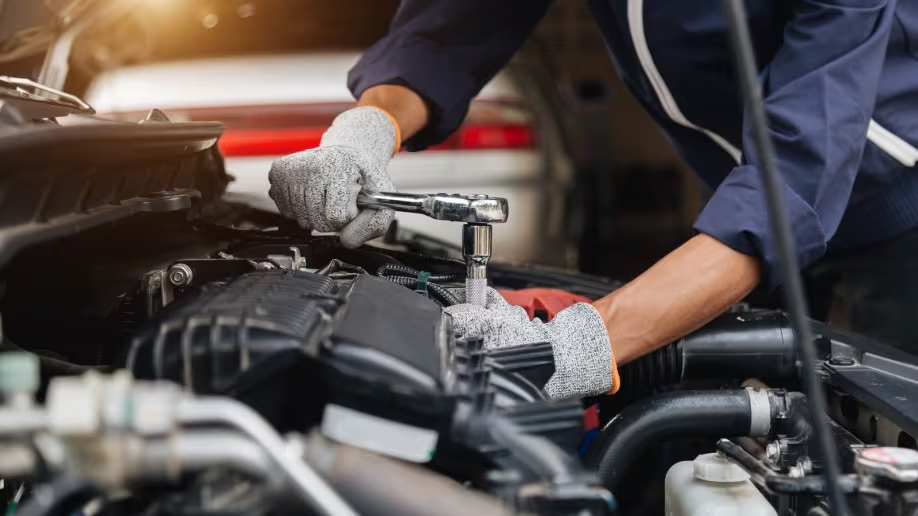
Efficient Car Maintenance: Tips for Vehicle Longevity
1. Routine Maintenance Schedule
Adhering to a routine maintenance schedule is crucial for keeping your car in optimal condition. Frequent examinations help stop minor concerns from developing into more serious ones. If you’re in Monmouth Junction, consider services like oil delivery Monmouth Junction NJ, to ensure timely maintenance without hassle. Having a set schedule for tire rotations, brake inspections, and oil changes can significantly enhance your vehicle’s performance and reliability. Additionally, consulting your vehicle’s manual for manufacturer-recommended service intervals is a wise approach. Routine maintenance isn’t just about addressing existing issues but also about preventative care. By avoiding potential problems, you can save time and money in the long run.
2. Regular Oil Changes
One of the simplest yet most important car maintenance tasks is changing the oil. Regular oil changes ensure that your engine runs smoothly and efficiently. Neglecting this can lead to engine wear, increased emissions, and other complications. The procedure includes emptying the old oil from the engine, changing the oil filter, and adding fresh, clean oil to the engine. It’s a task that can be done at home if you are mechanically inclined, or you can take advantage of local services for convenience. The frequency of oil changes can vary depending on a number of factors, including driving style and vehicle type, but as a general guideline, it should be done every 3,000 to 5,000 miles or as advised by the manufacturer. Clean oil lubricates engine parts, reduces friction, and can even improve your gas mileage.
3. Tire Care and Maintenance
Proper tire maintenance is essential to ensuring your safety on the road. Regularly check tire pressure, rotate tires, and inspect for signs of wear. Well-maintained tires can improve fuel efficiency, handling, and overall road safety. While over-inflated tires can wear out unevenly, under-inflated tires can cause poor handling, decreased fuel efficiency, and even tire blowouts. A simple tire gauge can help you maintain the correct pressure. According to the U.S. Department of Energy, correctly inflated tires can increase fuel economy by as much as 3%. Furthermore, rotating your tires every 6,000 to 8,000 miles prolongs tire life, promotes even tread wear, and keeps handling balanced.
4. Brake System Checks
Your car’s brake system is one of its most critical safety components. Driving safely requires routine brake inspections. Unusual noises, reduced responsiveness, or a spongy brake pedal can indicate the need for a professional evaluation. The braking system comprises several components, including brake pads, rotors, calipers, and brake fluid. Maintaining these elements not only ensures your safety but also extends the lifespan of your brakes. To prevent rotor damage, it is recommended that you inspect your brake pads every 10,000 to 15,000 miles and replace them if they are worn down. Additionally, brake fluid should be checked during every oil change and replaced as needed to maintain braking efficiency.
5. Battery Health
Car battery maintenance is often overlooked but is crucial for your vehicle’s reliability. Regularly check for corrosion and ensure connections are secure. According to Consumer Reports, an average battery lifespan is about four to five years, so plan for timely replacements to avoid sudden breakdowns. You can detect possible problems, such as corrosion accumulation on terminals, by performing a brief visual examination. These can be cleaned using a solution of baking soda and water. A multimeter can also be used to measure the battery’s voltage. It might be time for a replacement if the voltage falls below 12.4 volts. Since the alternator charges the battery while the engine is operating, it should also be inspected.
6. Monitoring Fluid Levels
Keeping an eye on your car’s various fluid levels helps maintain optimal performance. Regularly check coolant, brake, transmission, and windshield washer fluid. Addressing low fluid levels promptly can prevent damage to your vehicle. Coolant keeps your engine from overheating, while brake fluid ensures effective braking. Low transmission fluid can lead to shifting issues and potential transmission damage. Although seemingly minor, windshield washer fluid improves visibility, which is crucial for safe driving. Always use the fluid types recommended in your car’s manual to avoid any compatibility issues. Along with oil changes, routinely scheduled checks of these fluids will help maintain your car’s smooth operation and increase its longevity.
7. Seasonal Car Care Tips
Seasonal changes can affect your vehicle’s performance. Winter requires antifreeze and snow tires, while summer necessitates coolant checks and air conditioning maintenance. Following seasonal maintenance advice helps prepare your car for the upcoming weather conditions. In winter, using winter-specific tires can significantly improve traction on snow and ice. Antifreeze levels should be checked and topped off to prevent the engine from freezing. During summer, the higher temperatures place more stress on your car’s cooling system, making coolant checks crucial. Air conditioning should also be serviced to maintain comfort and prevent any unexpected breakdowns. Your vehicle’s battery is also particularly vulnerable to extreme temperatures, requiring extra attention in both summer and winter seasons.
8. Benefits of Professional Servicing
While routine DIY maintenance is essential, periodic professional servicing can catch issues you might miss. Mechanics have specialized tools and expertise to keep your car in top shape, ensuring safety and longevity. Professional services can include advanced diagnostics and comprehensive inspections that go beyond what basic maintenance covers. They can detect potential issues early, often saving you from more costly repairs down the line. Regular professional check-ups can also include software updates and recalls that you may not be aware of. Moreover, maintaining a detailed service record can enhance your car’s resale value. Periodic visits to a trusted mechanic ensure your car remains a reliable mode of transportation for years to come.



